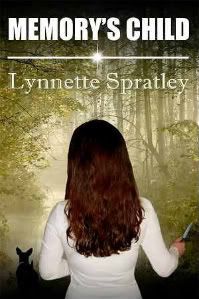 It’s a badly-kept secret that I prefer writing dialogue to writing description.To me, description should be brief but substantial, so that it delivers plenty of information to the mind’s eye without blathering on and on about the color of someone’s shirt or going into painfully explicit detail about the way the setting sun strikes the forest floor through the tree canopy.
It’s a badly-kept secret that I prefer writing dialogue to writing description.To me, description should be brief but substantial, so that it delivers plenty of information to the mind’s eye without blathering on and on about the color of someone’s shirt or going into painfully explicit detail about the way the setting sun strikes the forest floor through the tree canopy.
The sunlight is dappled, okay? I don’t need to know that the light is pale lemon yellow as it stabs through the pine needles, or dark and rusty looking as it weaves its way from the sky to the scattered carpet of brown and crispy oak leaves on the forest floor. I really, honestly don’t care. The sunlight is dappled. That’s enough for my mind’s eye to conjure up a crisp carpet of leaves below and a lush canopy above.
I once spent weeks studying character descriptions in novels. I didn’t look at descriptions of the main characters, because those should occur frequently throughout the book.
What I found was that in nearly every case, the author used around 100 words of description when introducing other characters that may or may not reappear in the story, and around 50 words to describe a character’s clothing, gestures and facial expressions if they did reappear. Secondary characters sometimes required more detail than lesser characters, especially if they were doing something like washing a car or firing a weapon as a chapter opened.
That’s what I learned from studying books that I liked to read. It’s not a formula, but I do use that information as a guideline when I write. Many times, trying to write a good description succinctly has forced me to work harder at using that small block of text to its greatest advantage.
My informal research also turned up the fact that, other than character descriptions, detailed descriptions of setting and action sequences such as gunfights and autopsies could go on for pages. I understand that describing the pathologist’s movements and the tools he uses in dissecting a corpse lends authenticity to the book (and thus, the author), but books I love give me a vivid snapshot without showing me the whole movie. Please stop describing Stryker saws to me every other chapter. I already know more about them than I ever wanted or needed to. There’s that dappled sunlight, again.
I force myself to write description, because although I know what everything looks like, the audience does not. However, I skim or skip overly long, descriptive passages when I read other peoples’ work. Too many novels have more description than story. It’s like wearing full arctic gear in Miami in June.
If you condensed all that narrative, you might wind up with a lovely, highly readable short story or a novella. With the minute details of descriptive passages gone, most readers will conjure up their own visions.
Why don’t authors trust readers to employ their own imaginations anymore? I’d read every word of a book with less description, because it would be jam-packed with the important stuff. The story.



